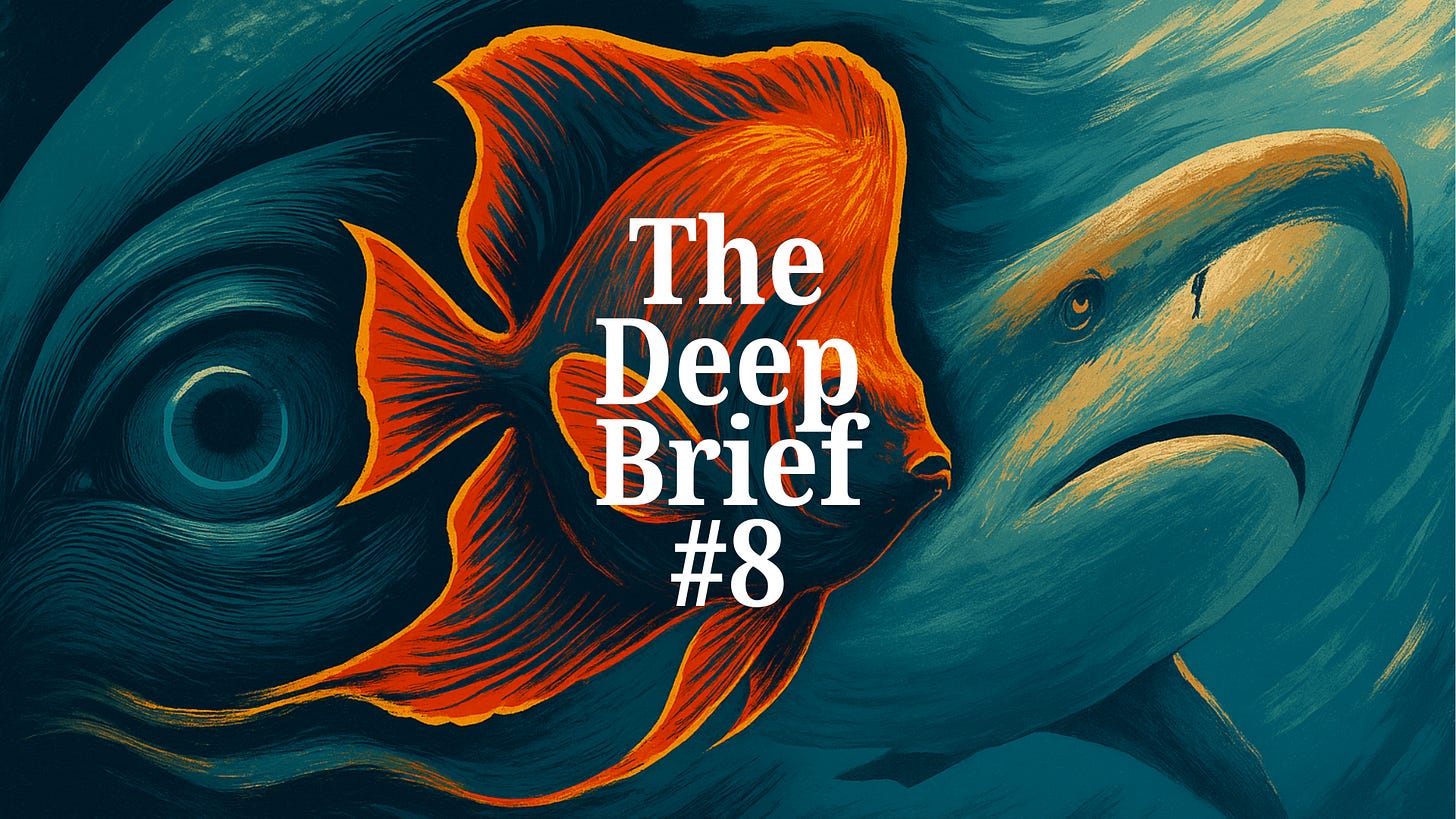The Deep Brief #8 | Friday 25 July 2025
Your end-of-week ocean intelligence, built to inform, agitate, and equip you.
Each Friday, I scan global headlines, frontline campaigns and scientific papers to bring you the most urgent, overlooked, or powerful stories shaping our relationship with the sea. It is unfiltered, sometimes uncomfortable, but most definitely unmissable.
Three deep dives. Three quick hits. One hard truth from the sea.
Deep Dives
1. Ocean beauty in focus: Winners of the UN World Oceans Photo Competition
I’ve led with this because sometimes we need to remember what we’re fighting for, and sometimes the most powerful ocean stories are told without words. The 2025 UN World Oceans Photo Competition has revealed its stunning winners, from bioluminescent reefs to polar bears adrift on melting ice. These images capture not just the ocean’s beauty, but its vulnerability. The winning photographs, chosen from thousands of entries across six categories, highlight the deep connection between people and the sea, and remind us what’s at stake.
See the winning images
2. Penguins know the tides better than we do
A study from Swansea University shows that gentoo penguins time their foraging dives with remarkable precision — syncing them to the tide cycle to save energy and increase feeding success. Tagged penguins travelled up to 30 km from their nests, diving deepest during rising tides. It’s a reminder that animals are not just surviving in dynamic ocean conditions — they’re mastering them.
Read the study
3. The court has spoken - Climate inaction could now be illegal
The International Court of Justice has issued a historic advisory opinion, confirming that countries may be in breach of international law if they fail to act on climate change. For the first time, the ocean itself is recognised as a victim of legal harm. This shifts the legal landscape for future climate cases and gives Pacific nations like Vanuatu, who spearheaded the effort, a powerful new tool. Damage to coral reefs, warming seas and marine biodiversity loss are now more than environmental tragedies. They’re human rights violations.
Read the ruling impact
Quick Hits
Tiny ocean crustaceans use genetic tools to weather climate change
Scientists have discovered that marine copepods, the tiny crustaceans at the heart of the ocean food web, rely on a largely unknown biological toolkit to survive the stresses of climate change.
Explore the genetic tree
New deep-sea species discovered near Japan
Meet Bathylepeta wadatsumi, a ghostly white limpet living 8,200 metres below the surface, one of the deepest-dwelling marine snails ever recorded.
See the discovery
Tides may control when Antarctic icebergs break off
New research links daily tidal forces to the timing of iceberg calving events, offering a new way to forecast ice loss in a warming world.
Read the full paper
One Hard Truth
Protection only matters if it protects something
The ocean is covered in boundaries. We draw lines, assign names, and call them safe. Marine Protected Areas. Exclusive Economic Zones. Sustainable Use Reserves. On paper, these lines suggest progress, a global commitment to ocean stewardship. In reality, many are meaningless.
A sweeping investigation has shown that nearly 90% of Marine Protected Areas allow fishing, including destructive practices like bottom trawling and longlining. In some regions, fishing pressure is even higher inside protected zones than outside.
It is easy to announce protection. It is harder to enforce it. MPAs are being used by governments and corporations alike to signal environmental leadership while continuing business as usual beneath the surface. The result is a dangerous disconnect, one where ecosystems collapse while the headlines say otherwise.
Marine protection was never meant to be symbolic. It was meant to be a shield. A lifeline. A promise that some parts of the sea would remain untouched, unexploited, and allowed to recover. If we claim to protect, we must mean it. Otherwise, the ocean becomes not just a victim of exploitation, but of betrayal.
Final Thought
The ocean doesn't just store our carbon and cradle our weather. It sharpens our questions. It dares us to pay attention.
This week we saw it all, a limpet found 8,200 metres deep, penguins riding tides like seasoned mariners, and a shark photographed mid-turn in a blur of motion and myth.
Protection, presence, purpose. The sea is offering all three. What will we offer in return?
If this newsletter helps you feel more connected to the ocean, please give it a like and a restack. If you haven’t already, you can subscribe to Ocean Rising for weekly dispatches, podcast episodes and sea stories that matter.
See you next week.
– Luke



